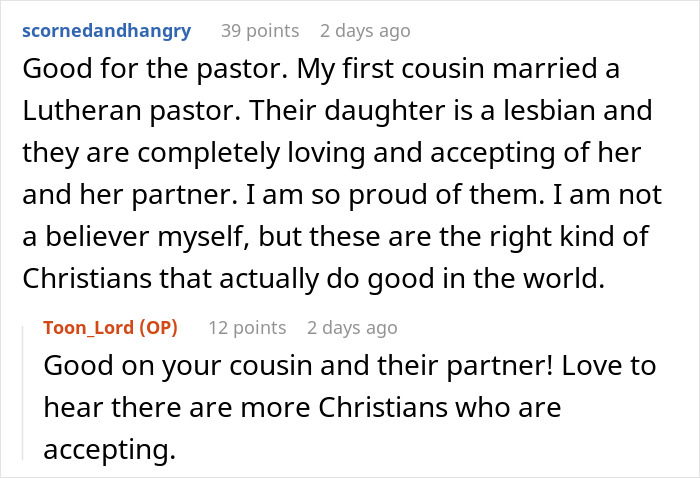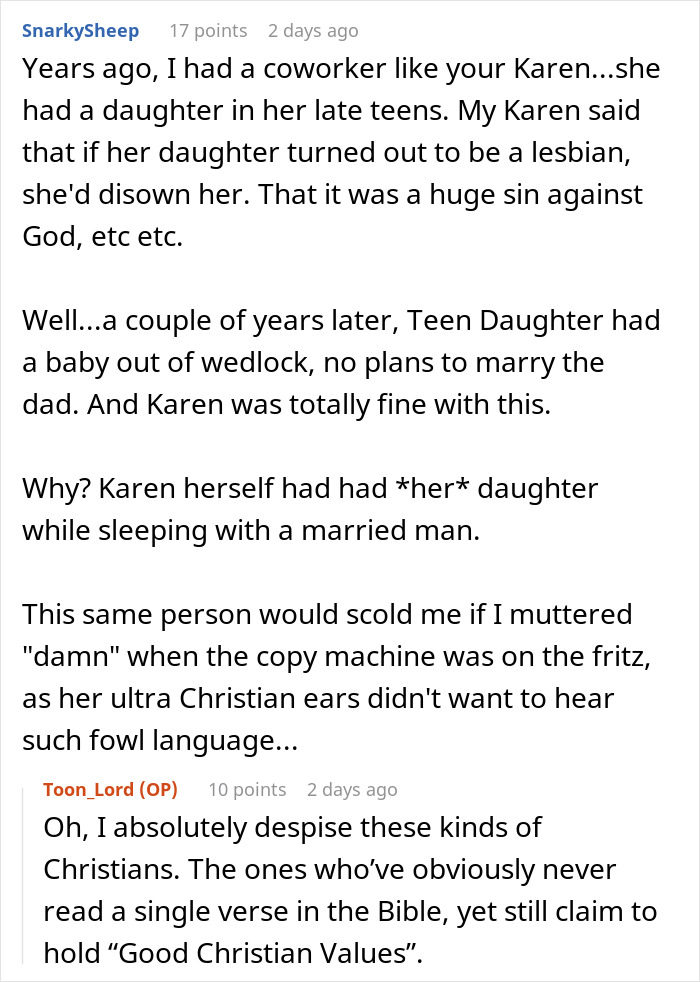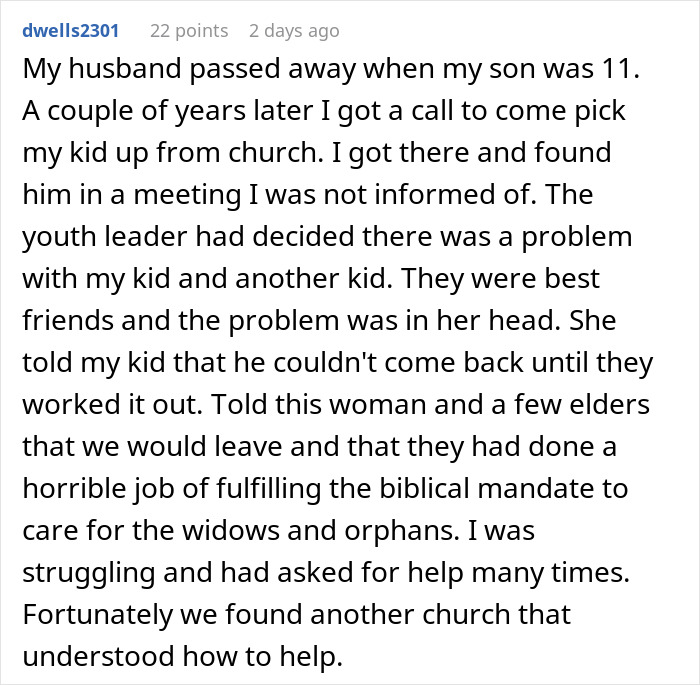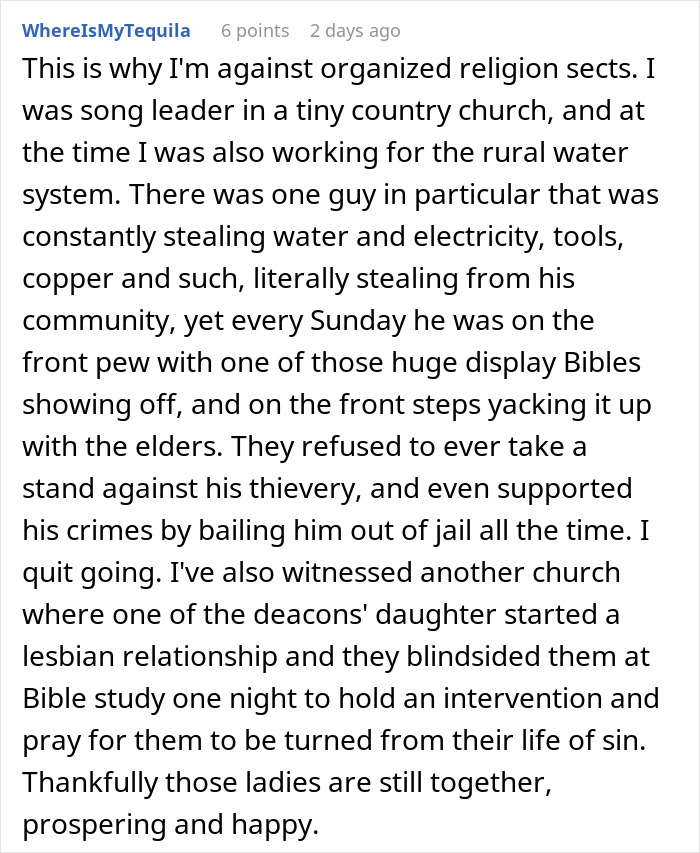Historically, churches haven’t been very welcoming toward LGBTQ+ people. Still, 47% of LGBTQ+ adults in the U.S. say they are religious; 1.5 million are Protestants and 1.3 million are Roman Catholics. Queer people have often been othered in religious communities, branded as sinners.
Luckily, not all churches are like that, and this story is a great example. User u/Toon_Lord recently shared a story from the past about the way his church’s pastor dealt with a homophobic Karen. The woman went on a bigoted rant about two lesbian teens she saw during service. However, the pastor and the father of one of the teens put her in her place.
Everyone should be welcome in a church, regardless of their race, gender, or sexuality
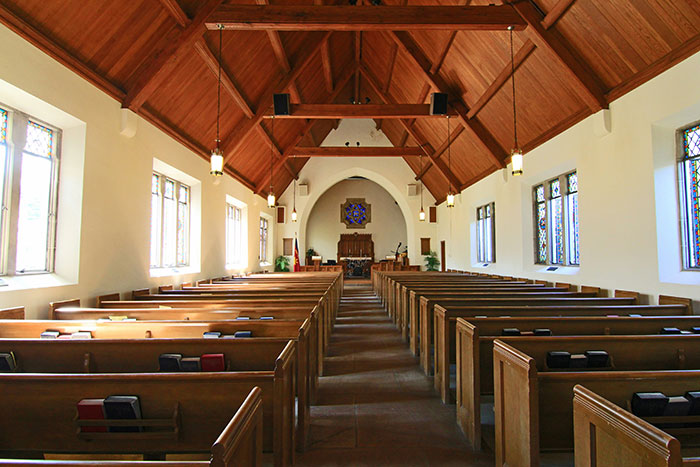
Image credits: Debby Hudson (not the actual image)
This pastor shut down a homophobic Karen after she insulted his lesbian daughter
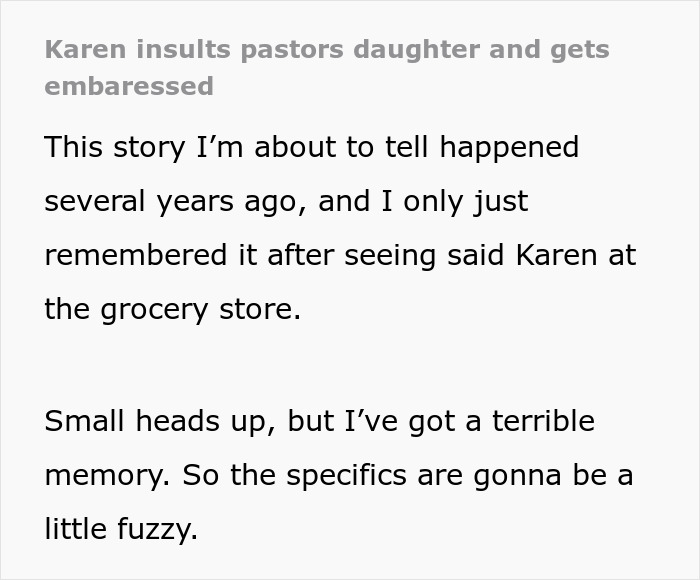
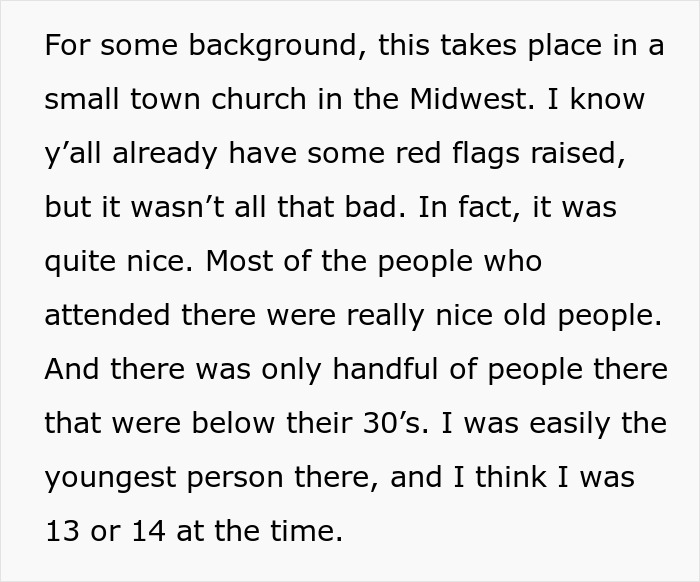

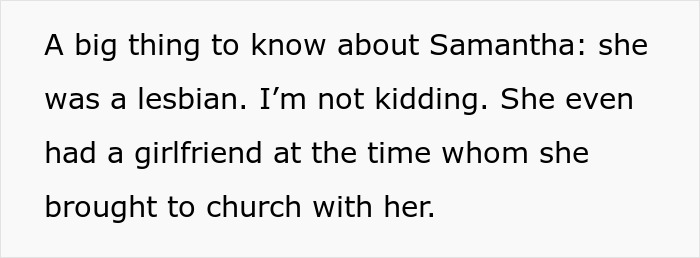

Image credits: Ave Calvar (not the actual image)

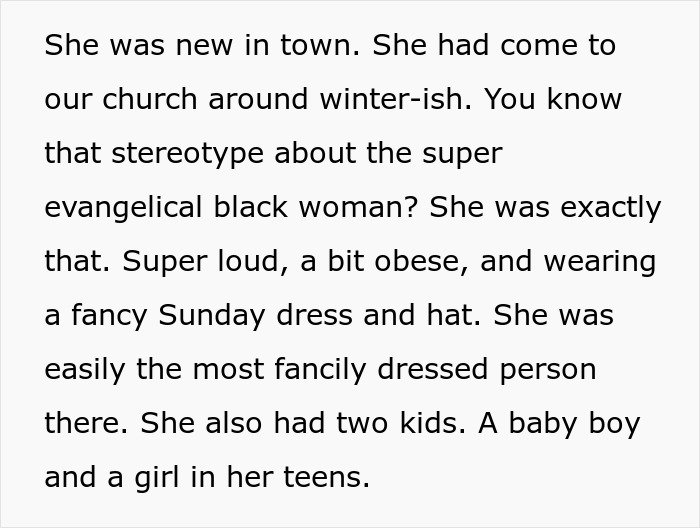

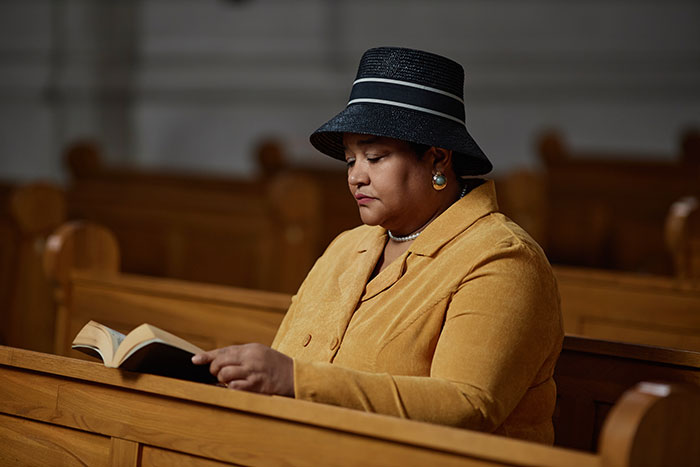
Image credits: seventyfourimages (not the actual image)
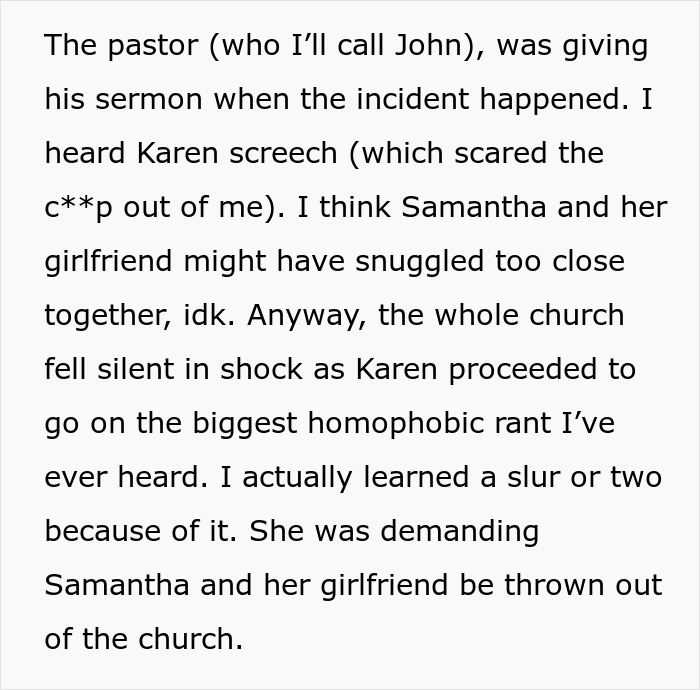
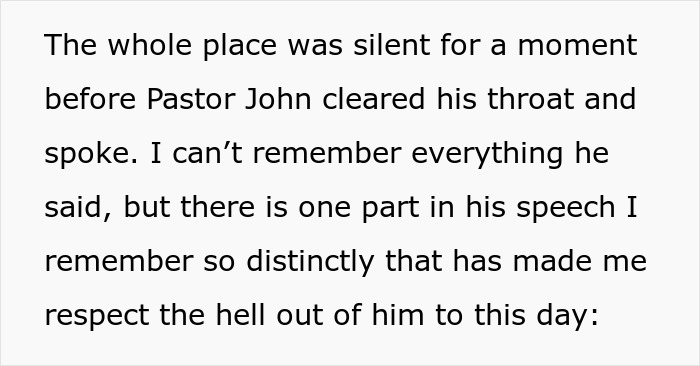
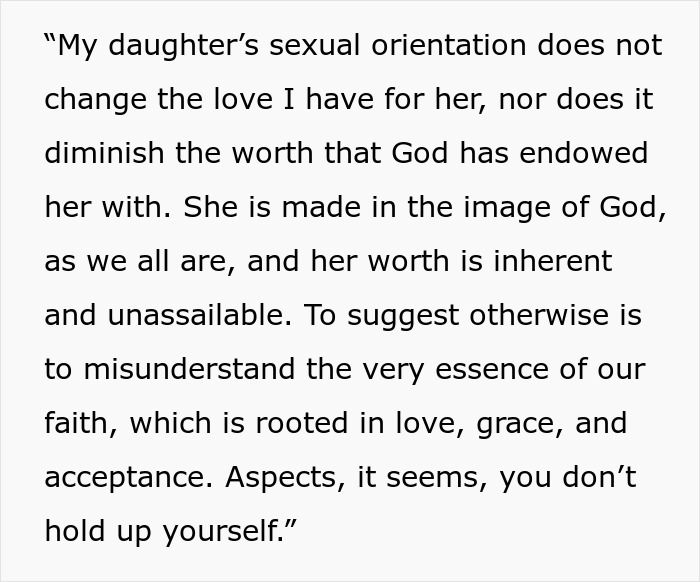
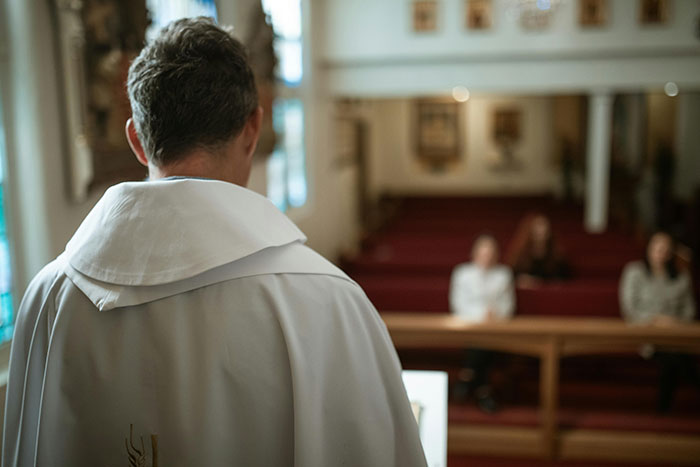
Image credits: RDNE Stock project (not the actual image)
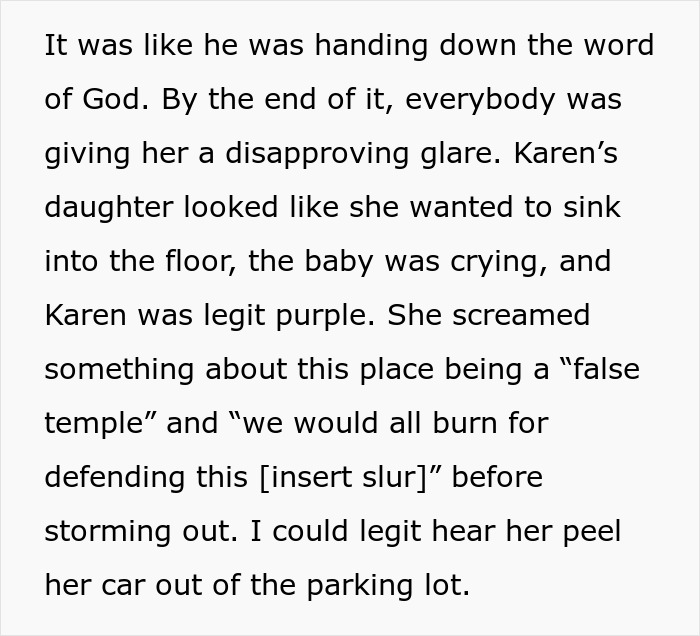
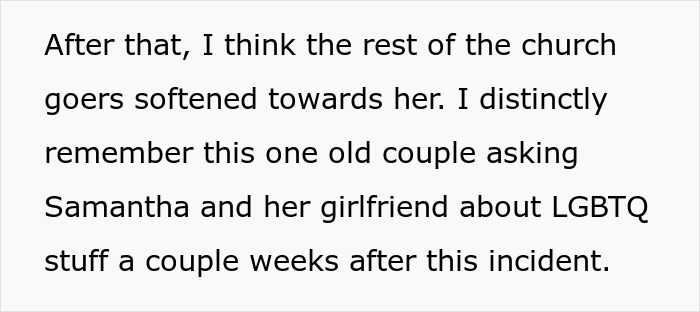
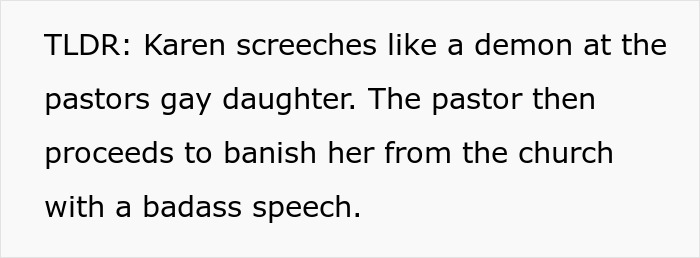
Image credits: Toon_Lord
Gay people can find acceptance in the church, depending on which denomination they choose
Many churches, whether fundamentalist Christian or Protestant, haven’t been the most welcoming to gay people. Yet nearly half of LGBTQI+ persons in the U.S. are still religious. Some adopt the same religion they were born into, and others choose to leave their parents’ church and look for a church that reflects their values.
But that’s not an easy task for an LGBTQI+ person, as they can still face discrimination in many religious communities today. Francis DeBernardo, executive director of the LGBTQ-affirming New Ways Ministry, told NBC News that churches have vilified and excluded gay people for a long time.
And some choose to stay even when they’re not welcome. “I have seen an enormous number of LGBTQ people whose faith and religious identity are so strong that they continue to push for acceptance even against mammoth walls of opposition,” DeBernardo said.
Luckily, more and more churches are taking an LGBT-affirming stance. There are pastors who are openly gay, married to a same-sex partner, and even transgender. Brandon Thomas Crowley, an openly gay pastor of the Myrtle Baptist Church, says that his work is about taking Christianity back to its roots – accepting the idea that we are all God’s children.
“The queering that I do in churches is not bringing churches into the world or bringing the world into churches,” he told CBS News. “It’s actually drawing churches closer to the original message of Christ, which is about love and acceptance.”
The Roman Catholic church still has a harsh stance regarding LGBTQI+ people
It can be hard for gay people to find an LGBTQI+-affirming church. Even in 2024, many churches don’t welcome members of the LGBTQI+ community, especially those of the Roman Catholic denomination. The heads of the church also send mixed signals about their stance on the whole issue.
At the beginning of 2023, Pope Francis declared that homosexuality is not a crime but still a sin. A few days later, he clarified his remarks by adding that he meant that homosexual relations outside of marriage are a sin. Therefore, homosexuality per se is not a sin. “It is a sin, as is any sexual act outside of marriage,” he wrote in his reply.
At the end of 2023, the Pope then approved priests blessing same-sex marriages. However, at the beginning of 2024, the Vatican issued another statement, clarifying that this does not mean the Catholic church endorses homosexuality. At the same time, it’s not “heretical, contrary to the tradition of the church or blasphemous.” Still, that doesn’t apply to marriage or civil union.
However confusing these claims may be, it’s worth mentioning that Pope Francis has done some things that further the acceptance of LGBTQI+ people. In November of 2023, he met with a group of trans women for lunch at the Vatican. He also urged parents of gay children to love them unconditionally because they are also “children of God.”
Other Christian denominations have adopted policies of LGBTQI+ inclusion. Leaders of The Episcopal Church, Reform and Conservative Judaism, the Evangelical Lutheran Church in America, and the Presbyterian Church (USA), for example, are vocal supporters of marriage equality, transgender inclusion, and other LGBTQI+ issues.
People rejoiced knowing preachers like pastor John exist

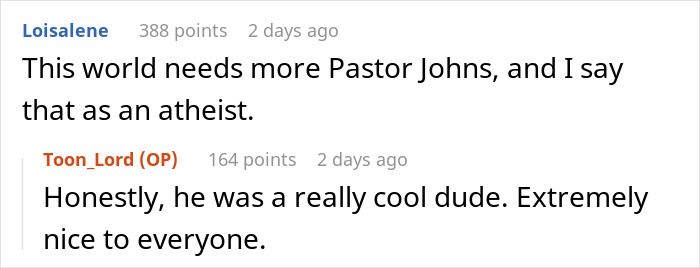
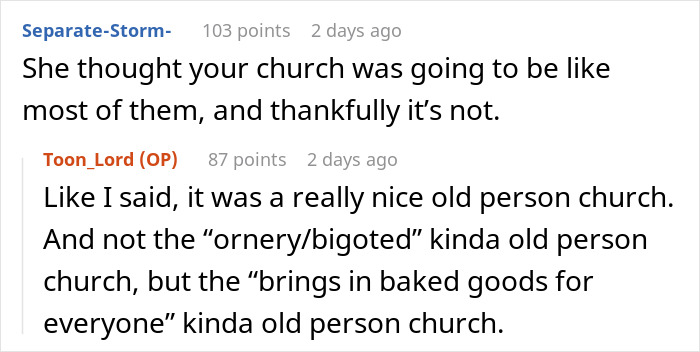
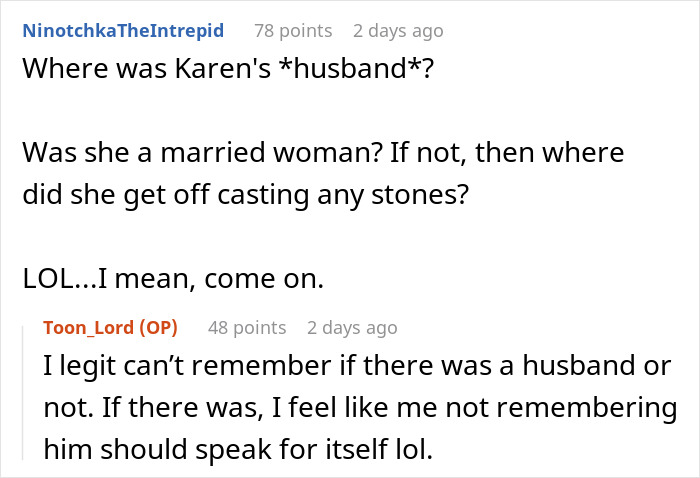
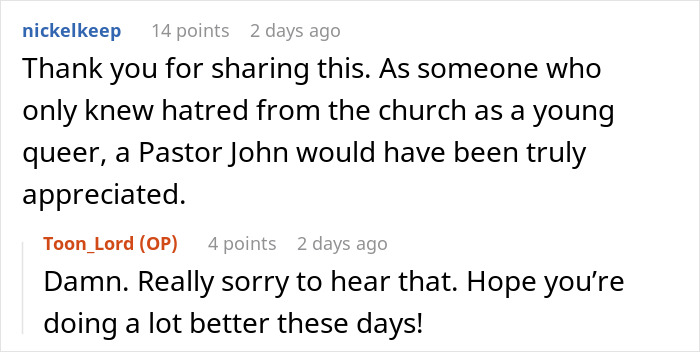

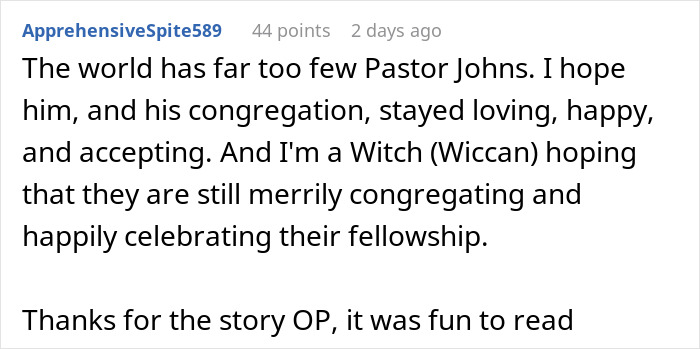



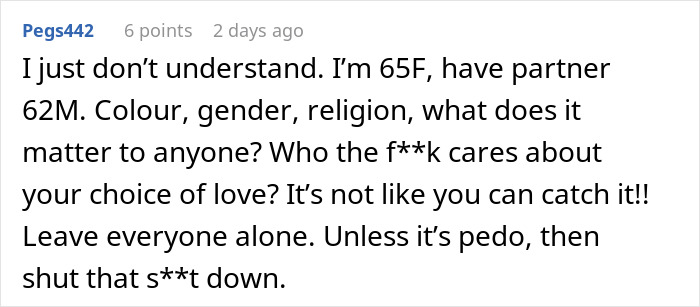
Commenters also shared their experiences with bigotry in the church
